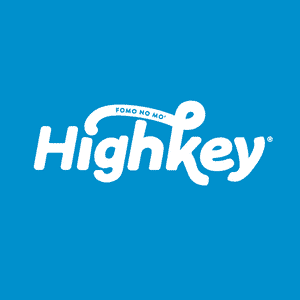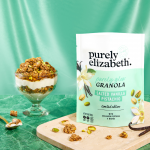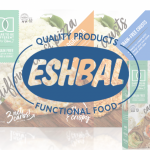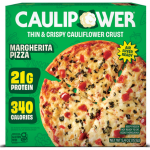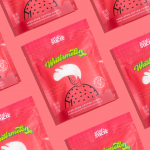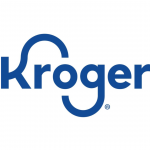After Amazon Success and Rebrand, HighKey Makes Moves Into Retail
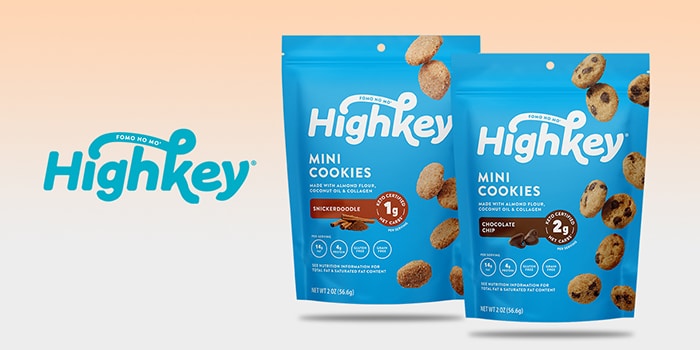
According to co-founder and co-CEO A.J. Patel, HighKey’s launch strategy was to release a selection of products online, identify which ones resonated the most with consumers, and eventually bring those products to retail. The brand’s line of Mini Cookies has become a standout product for the company after debuting on Amazon in January, 2019. Patel said he believes the three-SKU line filled a void not only in the cookie category, but also in the low-carb marketplace overall.
HighKey’s Amazon consumers aren’t just those who subscribe to the keto diet, said co-CEO Joe Ens, adding that the product fits into “two of the most important evolutions in the American diet” in recent years, low-carb and no added sugar, therefore appealing to a wider change of consumers looking for better-for-you options.
“We make sure that folks cutting carbs or just trying to get sugar out of their diet know we’re a solution for them, and those who are making more significant lifestyle changes like the keto diet, we’re part of their world as well,” Ens said.
All three cookie SKUs currently hold the number one best-selling chocolate chip cookie, snickerdoodle and brownie positions on Amazon, ahead of offerings from Famous Amos and Duncan Hines.
Betsy McGinn, founder of McGinn Ecomm Consulting, said that along with its position on the best-selling list, consumers are likely drawn in by the chocolate chip cookie product’s 11,500 reviews, with over 9,000 reviewers giving it a five star rating at an average of 4.6 stars. This volume of reviews, she said, reflects the brand’s “engagement with the consumer” and further influences consumers “to want to try and buy,” she said.
Through paid media on social media platforms such as Instagram, as well as leveraging Google SEO to raise product and brand awareness, HighKey has been able to build a community and drive not only consumer trial but repeat buys, Patel said. HighKey is also in the process of hiring for the role of Amazon marketing manager, who will be the “leader of the Amazon team who owns project management governance, process, and workflow of all Amazon listings, optimizations and promotional initiatives,” according to the LinkedIn listing. Patel said the position is intended to create “redundancy and talent across the board.”
“The direct-to-consumer and Amazon marketplace is a one-to-one battleground,” Ens added. “You have to win every single consumer one at a time. We’ve actually got some fairly extensive resources that are active in making sure that when a consumer reaches out, either for good or for bad, they hear from us in a very short period of time.”
HighKey’s rebrand rolled out in December, a part of the company’s preparation to launch its Chocolate Chip and Snickerdoodle Mini Cookies into Target. The rebrand included a packaging overhaul and a new, “FOMO NO MO’” tagline, more vibrant colors and a larger brand logo.
For the rebrand, HighKey worked with David Lemley, president and head of brand strategy at Retail Voodoo, who helped establish a stronger purpose and persona for the brand and target its core demographic. Lemley said the goal was to shift the brand to be more “lifestyle-forward,” allowing it to better appeal to the largely female consumer base that HighKey hadn’t previously been targeting. He also helped the brand establish a five-year plan that anticipates how the keto diet will fit into future diet trends, establishing keto as a “supporting claim” on the brand’s packaging with more focus placed on its low sugar and low carb attributes.
Patel said the rebrand was a “key piece” of preparing for its retail launch (the brand also launched in Whole Foods’ Southwest region in February), while investments in supply chain and sales organization were also essential in being able to scale the brand. A strong retail presence has always been an essential component of HighKey’s brand strategy, Patel said, and its direct-to-consumer and Amazon business is “just one piece to the puzzle.”
“We want to be everywhere where our customer is and have a diversified platform outside of just having an online presence,” Patel said.
McGinn said Amazon served as “another way of being able to market” for the digitally native brand, giving it the advantage of being able to appeal to consumers’ specific needs beyond the keto diet while building a base of consumers who may have otherwise walked right by it on the retail shelf.
“[Amazon] is a really strategic launch point as well as a longterm play, but some of the most successful brands finally leverage it into brick-and-mortar,” McGinn said. “There are consumers that they’re not going to reach digitally.”
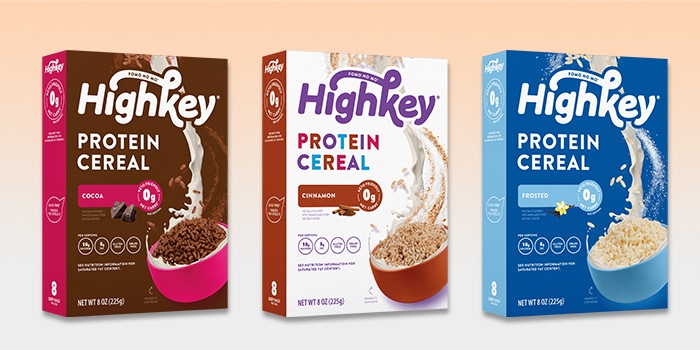
Ens said the brand has been relying heavily on consumers’ feedback for its innovation pipeline. Its three-SKU Protein Cereal launch last month was inspired by a “gap people were feeling in the cereal industry” and is already gaining momentum on Amazon, holding two of the top five best-seller spots in the cold cereal category. The brand is also launching three new products in June that are “coming right out of [consumer] recommendations,” Ens said.
For now, the cereal will remain an e-commerce offering only as the brand looks for retail gains for the cookie line. Conversations with other retailers have stalled due to COVID-19, Ens said, but he expects them to resume.
Looking ahead, Ens predicts consumers’ shopping habits will reflect an altered approach to health after stay-at-home orders are lifted and they begin to “get their diets back on track.” The brand recently conducted a survey of both its consumers and the general population, finding that eating fewer carbs and eating less sugar were the two most popular diet changes for the members of both groups who said they planned to eat healthier after stay-at-home orders were lifted.
“We think post-COVID, there’s going to be an ongoing reevaluation that we have as a society around our diets,” he said. “There’s going to be an increased emphasis on personal health, and right now our indication is that cutting carbohydrates and cutting sugar will be on the top of that list. Being a ‘low carb, sugar sucks’ comfort food business I think bodes well.”
